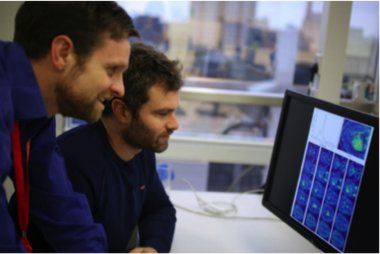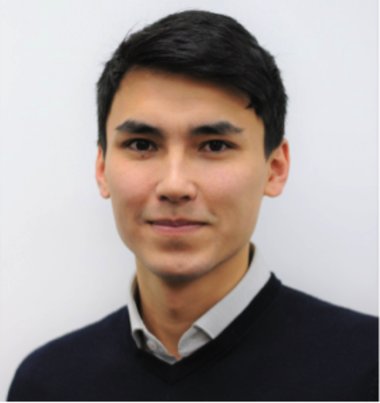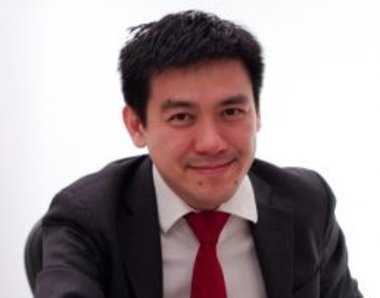24 March 2020
Dr James Teo [pictured right] tells us how big data and AI are being used to advance care for patients with neurological conditions across King’s Health Partners Neurosciences.
Dr James Teo, tell us about yourself
I am a consultant neurologist at King’s College Hospital NHS Foundation Trust, with a special interest in stroke. As well as holding the role of clinical director of data science at the Trust, I am also the lead for digital informatics for King’s Health Partners Neurosciences.
What do you think the impact of using big data and AI will be in the NHS?
Big data, the term used to describe the large volume of data in our day-to-day lives, and AI have the power to transform clinical service delivery, both in terms of outcomes for patients and the way in which we utilise NHS resources.
AI is trained to read and understand medical language. CogStack could be transformational in how the NHS handles the volume of data that is generated every day.
In one example, as published in PLOS | ONE, researchers at Kings College Hospital NHS Foundation Trust used CogStack to support patients with atrial fibrillation, an abnormal heart rhythm, who had been admitted between January 2011 to October 2017.
For 10,030 patients, personalised risk of stroke, risk of harm from treatment, or anticoagulation, and general frailty, was algorithmically derived from an NLP pipeline, based on the free text within discharge letters. These risk scores were used to inform clinical decision-making for anticoagulation. The same approach could be applied to a wide variety of clinical scenarios.
Can you give us any other examples of big data or AI working across King’s Health Partners Neurosciences that inspire you?
Dr Thomas Booth [pictured below, left-hand side with Dr David Wood, right-hand side] from King’s Health Partners Neurosciences, works on two National Institute for Health Research portfolio-adopted multi-centre studies for which he is chief investigator. Both involve neuroimaging and AI.
The aim of the first study is to develop a decision-making tool that identifies abnormalities on magnetic resonance imaging (MRI) brain scans using deep learning. To train the algorithm, they use the wealth of existing neuroimaging data from King’s Health Partners.
This study is truly collaborative, involving no fewer than six senior King’s College Hospital NHS Foundation Trust neuroradiologists, as well as stroke physicians, initiated at King’s College Hospital NHS Foundation Trust and involving other King’s Health Partners sites, including King’s College London Biomedical Engineering and Imaging Sciences and the Institute of Psychiatry, Psychology and Neuroscience (IoPPN).
Talking about the study, Dr Thomas Booth said:
Brain MRIs are difficult to process but with this study we hope to overcome this.
 The aim of the second study is to determine early treatment response in brain tumours, specifically in a type of brain tumour called glioblastoma. Its goal is to distinguish regrowth in glioblastoma, from a mimic called pseudoprogression, using MRI brain scans and machine learning. To train the algorithm the team are using existing brain tumour neuroimaging data from across King’s Health Partners.
The aim of the second study is to determine early treatment response in brain tumours, specifically in a type of brain tumour called glioblastoma. Its goal is to distinguish regrowth in glioblastoma, from a mimic called pseudoprogression, using MRI brain scans and machine learning. To train the algorithm the team are using existing brain tumour neuroimaging data from across King’s Health Partners.
Both studies are supported by King’s College Hospital NHS Foundation Trust’s research and innovation department, the Royal College of Radiologists, the King’s Health Partners Research and Development Challenge Fund and the Engineering and Physical Sciences Research Council Wellcome infrastructure funding.
Are there any other examples of interesting tools being researched in neurosciences?
 Prof Mark Richardson, Joint Director of King’s Health Partners Neurosciences, and I jointly supervise Anthony Shek [pictured right], a PhD student who is using both CogStack and a machine learning tool, called MedCat, to code data on patients with epilepsy at King’s College Hospital NHS Foundation Trust.
Prof Mark Richardson, Joint Director of King’s Health Partners Neurosciences, and I jointly supervise Anthony Shek [pictured right], a PhD student who is using both CogStack and a machine learning tool, called MedCat, to code data on patients with epilepsy at King’s College Hospital NHS Foundation Trust.
Once the rich data that is contained within the Electronic Health Record is systematically coded, we will be able to gain much better insights into the cohort of patients who attend King’s College Hospital NHS Foundation Trust to manage their epilepsy.
For example, we will be able to assess at scale issues such as how patients with different types of epilepsy respond to different drugs. In line with King’s Health Partners Neurosciences’ recovery theme, this will enable us to tailor treatment for patients. The data could also be used to predict future hospital service use.
Talking about the research, Anthony Shek said:
In an age where a Value Based Healthcare approach is important, this unstructured data will give us invaluable insights at speed and scale into healthcare usage.
Finally, what do you believe the value of being part of King’s Health Partners is in this?
King’s Health Partners has such a wealth of expertise including clinicians, data scientists and mathematicians who are all working seamlessly together to harness the benefit of big data and AI to improve outcomes for patients, both within the partnership and beyond.
Our website pages on informatics provide more information on the role of strengthening informatics to better join up care, research and education.
At King’s Health Partners Neurosciences we are using our collective expertise to become a global top ten Neurosciences Institute, by delivering outstanding research and education, and driving excellence in care for patients with neurological conditions.





